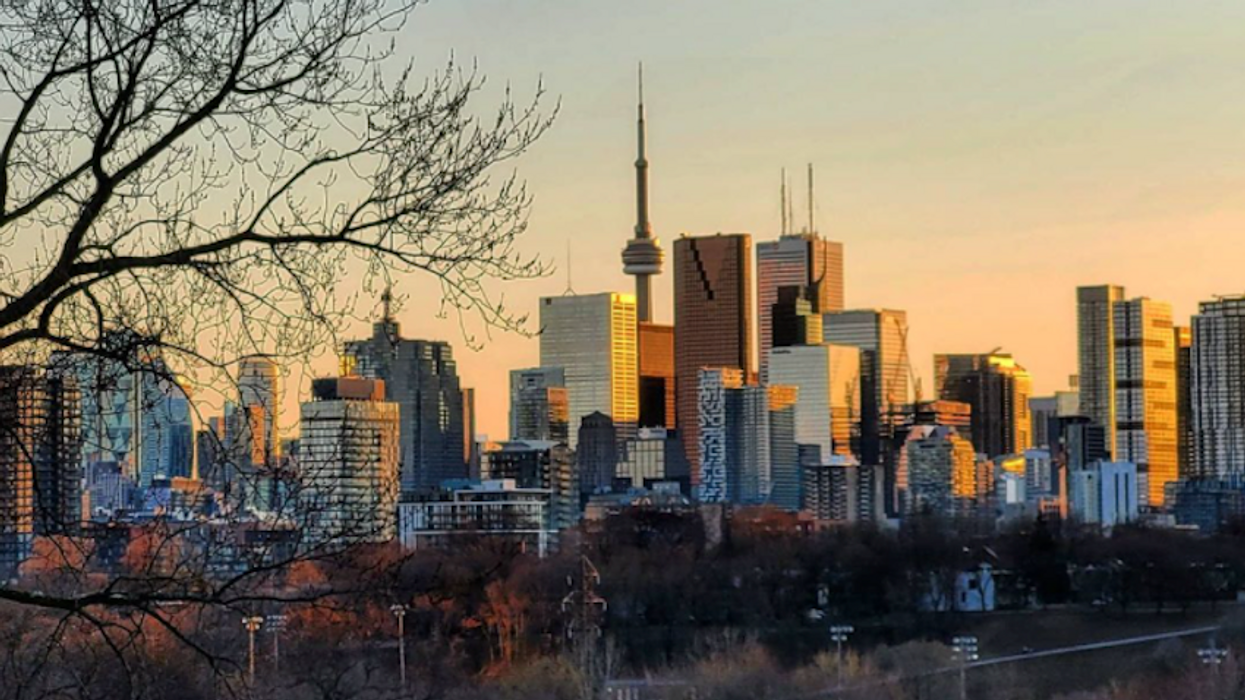The City of Toronto's 2021 construction season has officially launched, and it begins with more than $1 billion in work planned across the municipality.
Mayor John Tory, alongside Councillor Jennifer McKelvie (Scarborough-Rouge Park), Chair of the Infrastructure and Environment Committee, announced the kick-off of the season on Monday morning.
In the months ahead, the city will see work on roads, bridges, expressways, TTC tracks, sewers and watermains.
Both major and minor projects are included in the budgeted work.
READ: Construction Gearing Up to Begin on Toronto’s ‘Love Park’
“Municipal construction and the work we're doing to improve our infrastructure will help fuel our recovery from the COVID-19 pandemic and keep the foundations of this city in a state of good repair, especially when the economy begins to open up," said Tory.
"As we continue the vaccine rollout in Toronto, the need to renew the City's aging water and transportation infrastructure, which millions of residents rely on every year, is stronger than ever. We need to ensure our roads, sidewalks, bridges, expressways, watermains, TTC tracks, storm and sanitary sewers meet the needs of increased activity and can keep up with the city's growth now and in the future.”
Of the over $1 billion planned for the season, approximately $446 million will go toward rehabilitation and improvement of transportation infrastructure. This includes:
• $140 million on bridges, culverts and other transportation infrastructure in the municipal right-of-way
• $64 million on sidewalks and cycling infrastructure, Vision Zero infrastructure and the Road Safety Plan
• $88 million on expressways including the F.G. Gardiner Strategic Rehabilitation
• $82 million on major roads
• $72 million local roads.
Water infrastructure will see $616 million spread across its projects, which include:
• $240 million on watermains, transmission watermains and water services
• $98 million on sewers and forcemains
• $150 million on basement flooding protection
• $128 million on storm water management projects including the Don River and Central Waterfront.
And, some of the major projects the City has planned for 2021 include:
• King-Queen-Queensway-Roncesvalles intersection reconfiguration and infrastructure improvements
• Queen Street West from Fennings Street to Bay Street, watermain and TTC track replacement in addition to streetscaping work
• Broadview Avenue between Gerrard Street East and Danforth Avenue, watermain replacement
• Lower Jarvis Street from Queens Quay East to The Esplanade, watermain and sewer replacement
• Bathurst Street between Ranee Avenue and Lawrence Avenue West, watermain replacement and road resurfacing, plus geometric safety improvements on Bathurst Street at Brooke Avenue and Prince Charles Drive
• Bloor Street West between Spadina Avenue and Avenue Road, watermain replacement
• Twenty Ninth Street and Lake Shore Boulevard West from Twenty Fourth Street to west of Thirty Second Street, watermain replacement
• Kingston Road from Deep Dane Drive to Centennial Road North, road and sidewalk reconstruction
• Tapscott Road from Hydro right-of-way to McLevin Avenue, road resurfacing
• Midland Road from Hydro right-of-way to Sheppard Avenue East, road resurfacing and watermain replacement
• Wellington Street from Yonge Street to Church Street and Church Street between King Street East and Wellington Street; TTC track replacement, geometric safety improvements and streetscaping
• Weston Road from Lawrence Avenue West to Humberview Crescent, road resurfacing and construction in addition to streetscaping work
Per the Province of Ontario, city-led construction is considered an essential service, and is necessary to ensure Toronto’s infrastructure remains safe, in a state of good repair, and is able to meet the city's needs.
City officials say their teams take an "active approach" when coordinating construction, in order to reduce prolonged disruption to residents and traffic. Outside agencies such as the TTC, Toronto Hydro, and utility companies are brought into these process for increased streamlining.
The City says regular maintenance on roads, bikeways and sidewalks will continue through construction season. Daily pothole repairs and planned weekend pothole repair blitzes will go on; such work has already seen more than 40,000 potholes repaired since January. Localized repairs to roads and sidewalks, bridges, grass cutting, and street sweeping will also continue.
The annual weekend maintenance closure of the Gardiner Expressway -- which will see the the entire expressway closed from Highway 427 to the Don Valley Parkway (DVP) -- is scheduled for 11 pm on June 25 to 5 am on June 28. The annual weekend maintenance closure of the DVP is expected to take place from 11 pm on August 6 until 5 am on August 9.
The City will also undertake a new bikeway maintenance pilot this summer. For this, existing City crews will be deployed for frequent and dedicated inspection, maintenance, and localized repairs on Toronto’s bike infrastructure.
Meanwhile, the City says contractors must continue to abide by the terms and conditions of their contracts -- most importantly the Occupational Health and Safety Act -- and adhere to guidelines issued by public health authorities and the Ministry of Labour in order to both ensure a generally safe work environment, and to help stop COVID spread.
During construction, residents and visitors should plan their travel in advance, consider alternate routes, be aware that street parking may be impacted, obey signage around work zones, and be patient while traveling in and around work zones throughout the city.
Individuals are encouraged to use the City’s web-based map, online here, to help plan travel and avoid road closures. Information about the City’s planned capital construction work can be viewed here.





















